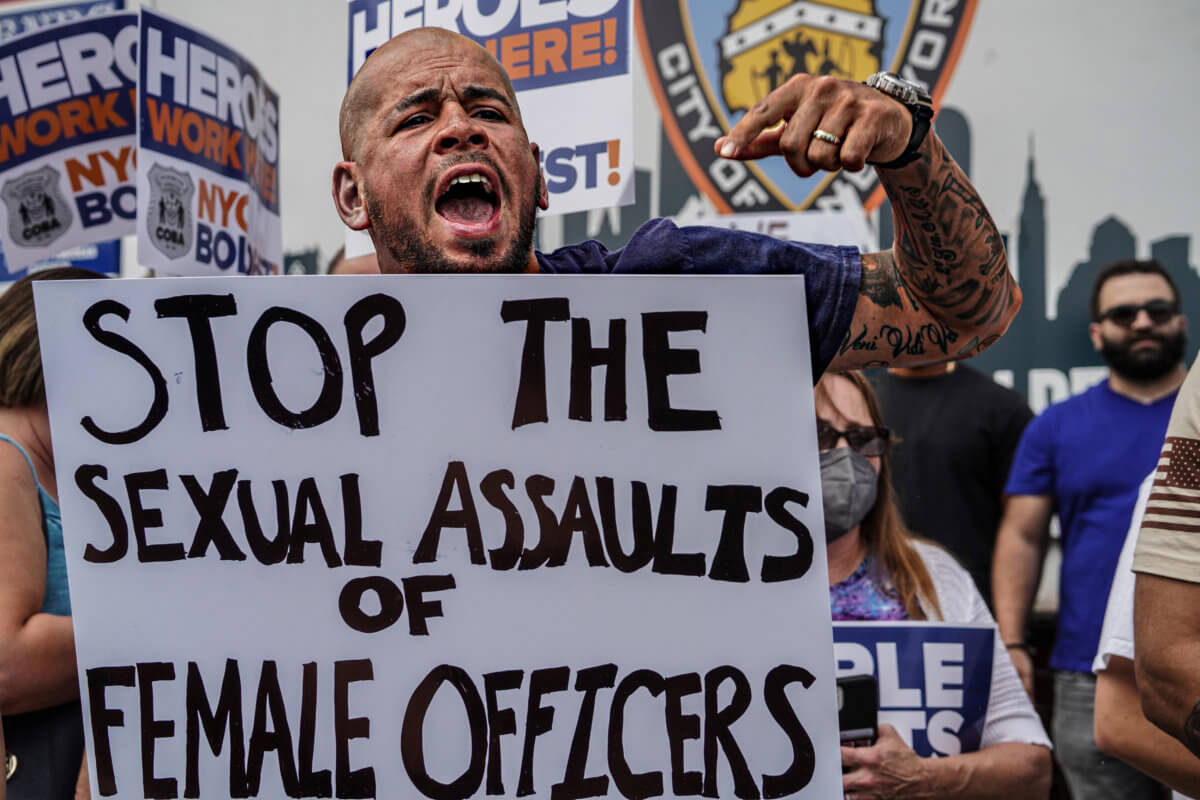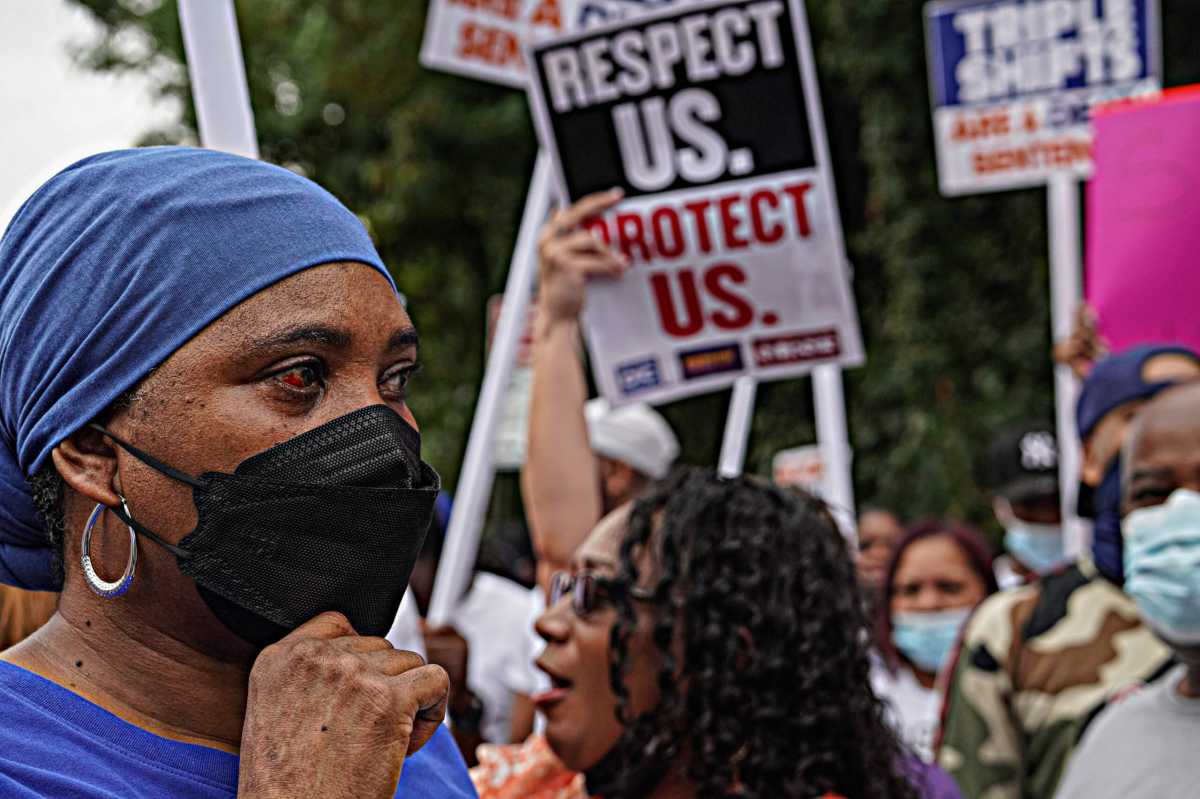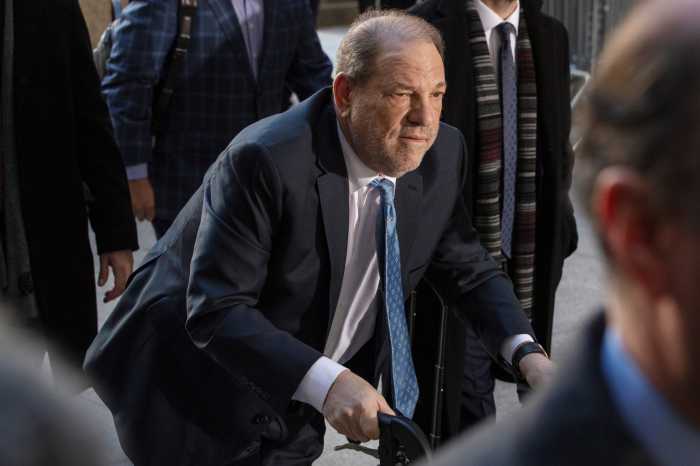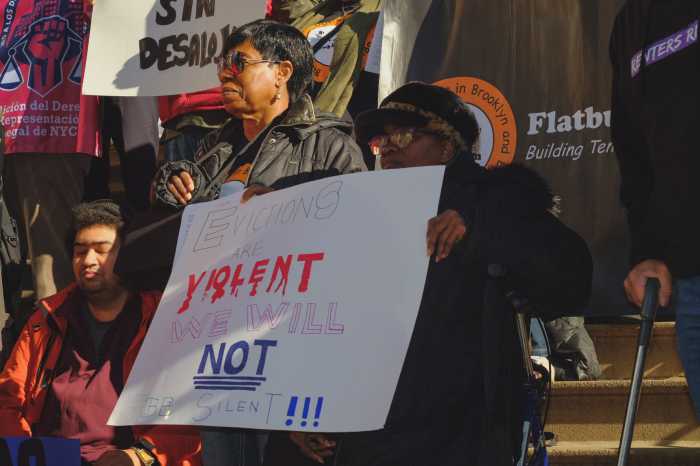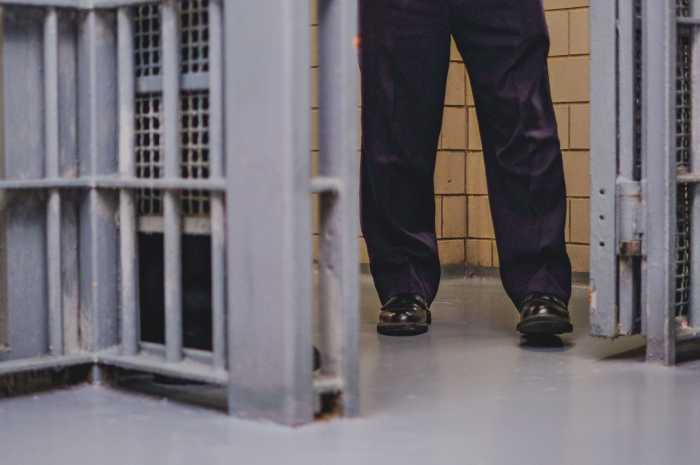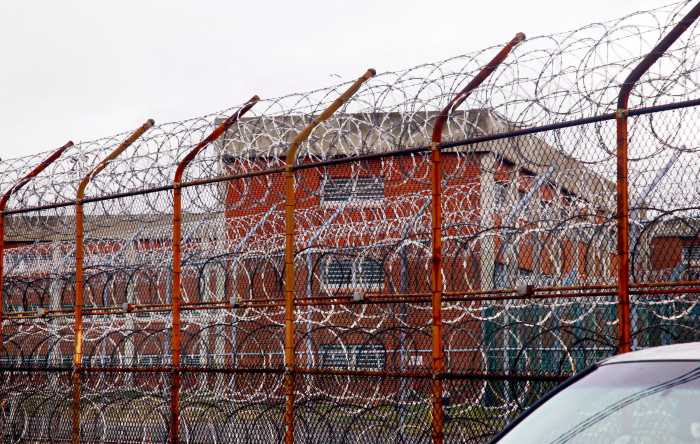Healthcare workers and correctional officers gathered near the Queens side of the Rikers Island Bridge on Monday in protest of the incarceration facility’s poor conditions and dangerous work environment.
Staff employed within the confines of the controversial facility that they are being assaulted and face life-threatening dangers on a daily basis. Hunkering down at the corner of Hazen Street and 19th Avenue in East Elmhurst, hundreds of protesters, workers and even physicians who care for those doing time behind the aged walls of the infamous penitentiary shared harrowing moments of sexual assault and violent outbursts.
Michael Nelson has been working as a correctional officer for over 17 years and during that time he has experienced and witnessed what he calls inhumane working conditions.
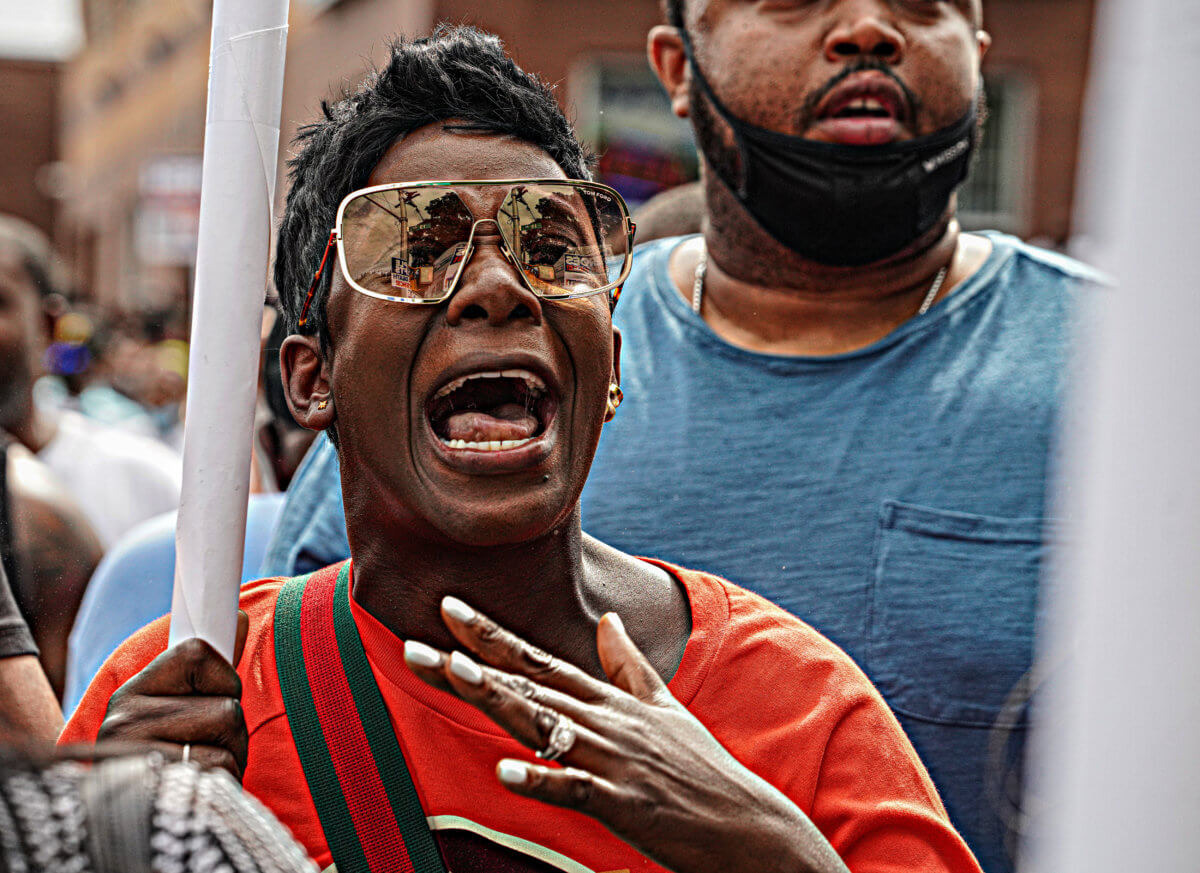
“I’m out here because we need change. We need somebody to care about us. We need the upper management to stop being negligent, to not turn a blind eye as to what is going on in this jail and the conditions,” Nelson said. He claimed that some officers are working beyond 24 hours without access to food or water as well as no running water in the bathrooms.
Nelson believes these conditions coupled with pandemic have made some correctional officers feel like they are dealing with life threatening and stressful situations with no relief or regard for their personal wellbeing by those in charge.
“It’s been getting worse and upper management has no clue and they don’t want to hear nobody. They don’t want to sit down and answer demands. It’s inhumane for staff,” Nelson said.
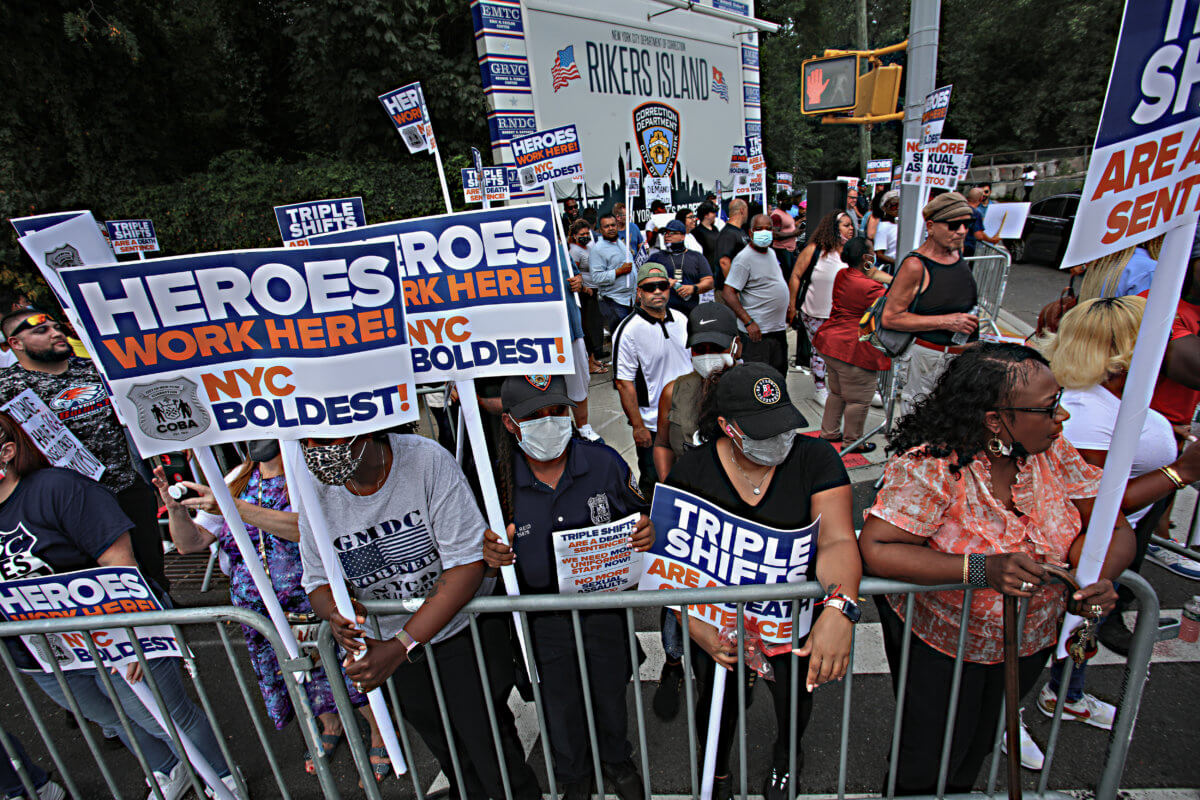
For Nelson and others present, they want the work environment to be safe for those incarcerated. They also are holding the Department of Corrections accountable for carrying through on promises to change and boost safety.
This action comes mere days after a 25-year-old inmate was found dead in his cell, hanging from a makeshift noose. Advocates in attendance stressed the importance of increasing safety for both employees and the incarcerated.
With many of these workers spending the better part of two decades fearing for their safety, supporting unions such as Doctors Council SEIU, New York State Nurses Association (NYSNA), and 1199SEIU say they are seeking a safe and effective solution.
Issues such as a shortage of correctional officers, a failure to sufficiently educate new staff, and what demonstrators believe to be a decline to ensure existing policies are adhered to and new ones are created to address underlying issues.
There were counter protesters present who felt that the sick leave policies for correctional officers is the issue at hand, hindering the safety of those incarcerated.
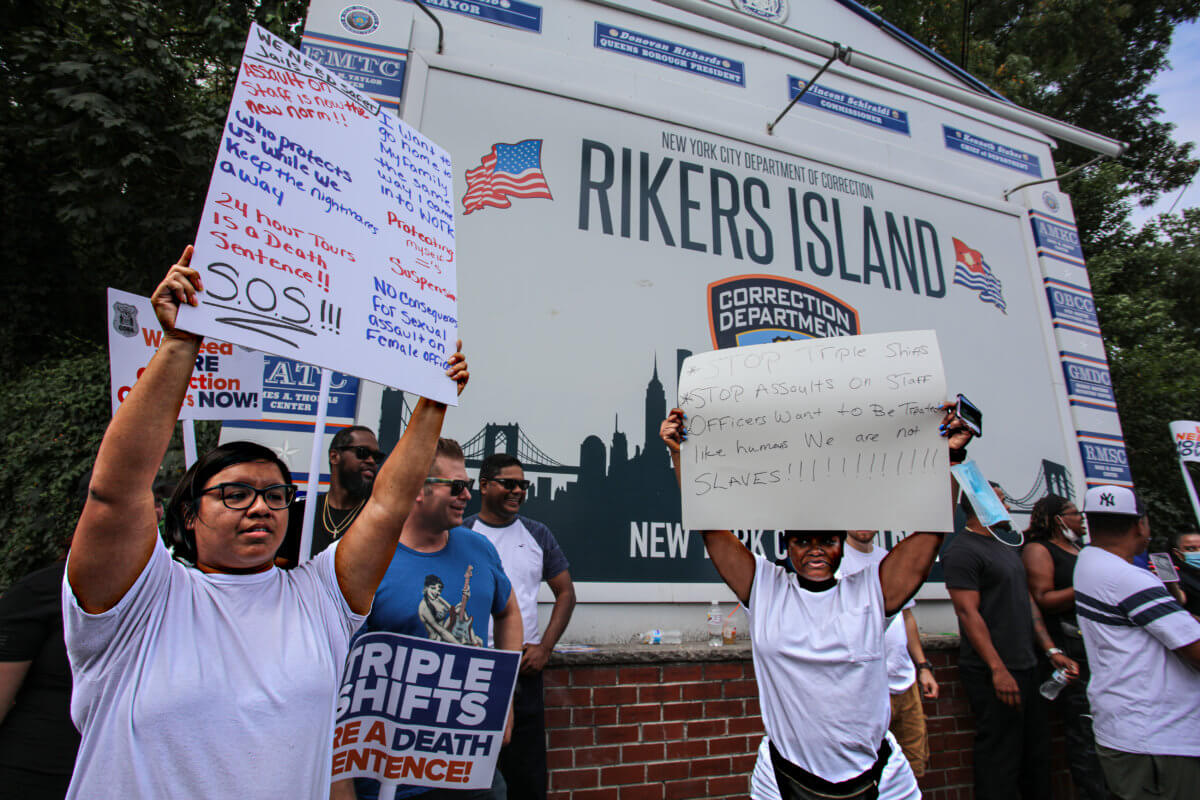
The Department of Corrections has approximately 8,800 uniformed staff members who are protected by allowing them unlimited sick leave. However, about 3,000 were either out sick or were not working with incarcerated individuals. About 1,600 were out on sick leave and about 2,200 did not come to work or call in.
The DOC is planning to hire 400 more officers and try to facilitate measures to allow those already under their employment back to work safely and securely.
“We agree with many of the concerns raised here. We are deeply concerned about the safety of our staff, medical staff, and incarcerated people in our facilities and are working hard to improve conditions. We have been taking extensive measures to encourage staff to return to work, to relieve those who have been heroically working extra shifts to compensate, and to make this an environment where any parent would feel like their own son or daughter was safe working or living here,” DOC Commissioner Vincent Schiraldi told amNewYork Metro.
